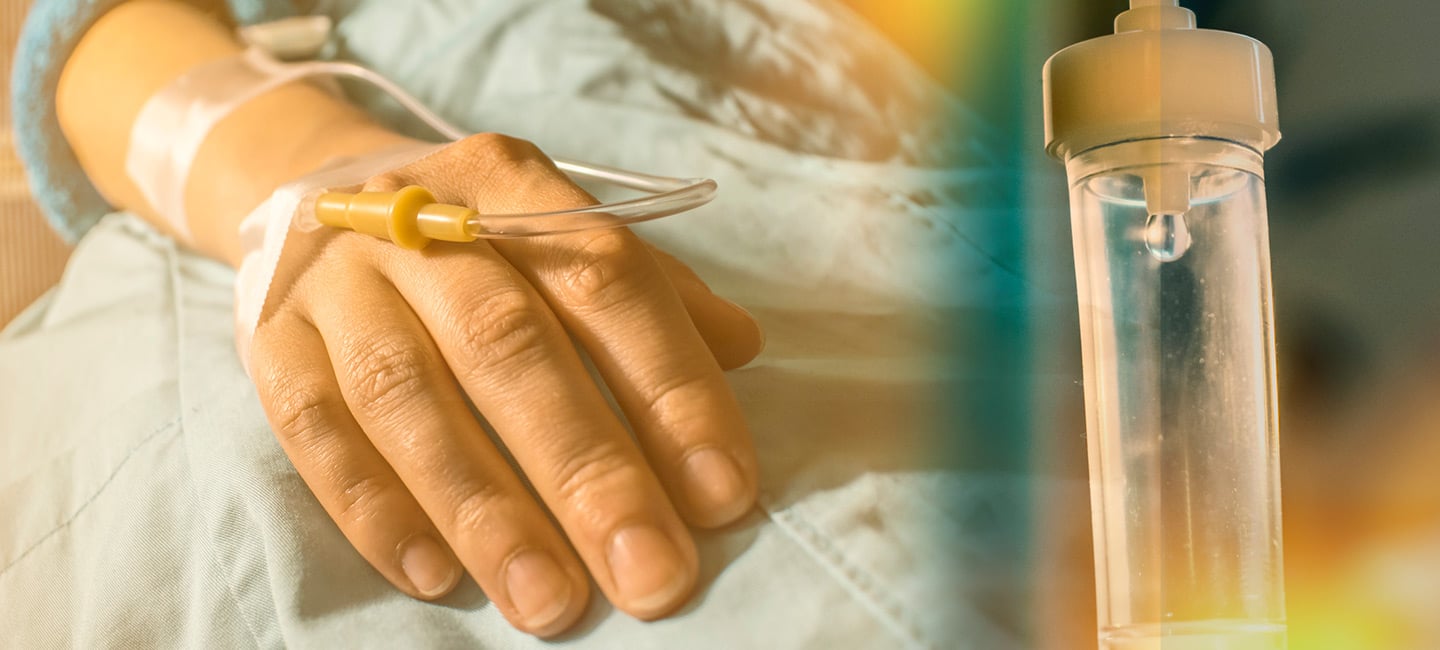HER2 Positive Breast Cancer Treatment Options

At Moffitt Cancer Center, we take an individualized approach to HER2 positive breast cancer treatment. The experts in our Don & Erika Wallace Comprehensive Breast Program focus exclusively on breast malignancies and collaborate to ensure each patient receives a treatment plan that has been tailored to address their unique needs. Our individualized treatment plans, in combination with our physicians’ outstanding expertise, consistently lead to the best possible outcomes and improved quality of life for our patients.
The importance of tailoring cancer treatments to address each patient’s condition has been illustrated again and again. When it comes to breast cancer, a patient's HER2 status plays a big role in the choice of treatment options.
HER2 refers to a protein known as human epidermal growth factor receptor 2, which controls cell growth. Overproduction of this protein can cause breast cells to grow and divide uncontrollably. This can lead to the aggressive malignancy known as HER2 positive breast cancer, which requires a different treatment approach than other kinds of breast cancer.
How HER2 Status Affects Breast Cancer Treatment
Generally, women and men with breast cancer receive testing to determine whether HER2 is present on the surface of their cancer cells and, if so, how much. If tissue from a cancerous tumor scores 3 or higher for HER2, the diagnosis is HER2 positive breast cancer, and oncologists are likely to include therapies that target HER2 in the patient’s treatment plan. The American Cancer Society estimates that 15% to 20% of breast tumors test high enough to be diagnosed as HER2 positive breast cancer.
In the past, if the score was less than 3, the diagnosis was HER2 negative, even if some HER2 protein was detected on the surface of the patient’s cancerous cells. HER2 negative breast cancer does not usually respond to HER2 targeted therapies, so these methods are less likely to be included in the patient’s treatment plan.
However, recent advancements have led to a third category: HER2-low breast cancer, which the U.S. Food & Drug Administration (FDA) describes as a newly defined subset of HER2-negative breast cancer. Patients whose tumors test positive for HER2 but at levels too low to be diagnosed as HER2 positive breast cancer may benefit from certain HER2 targeted therapies, including Enhertu.
In this article, we’ll discuss treatment options for both HER2 positive breast cancer and HER2-low breast cancer.
HER2-targeted therapies
As a type of cancer treatment, targeted therapy uses drugs to destroy specific cancer cells or slow down their growth. These drugs can be taken in pill form, given by injection or administered via an IV. In the case of HER2 positive breast cancer, the drugs target the excess protein that helps cancerous cells grow and spread. Some of these treatments include:
- Trastuzumab (Herceptin), neratinib (Nerlynx) and pertuzumab (Perjeta), which are drugs that block the cancer cells’ ability to receive growth signals
- Lapatinib (Tykerb), a drug that blocks certain proteins that can lead to uncontrolled cell growth
- Ado-trastuzumab emtansine (Kadcyla), which attacks HER2 positive cancer cells by attaching emtansine to Herceptin
In the past, patients with HER2-low breast cancer had limited options for targeted therapy. However, recent clinical trials have not only expanded treatment options for those with HER2 positive breast cancer but also paved the way for HER2-low breast cancer patients to receive targeted therapy.
New treatment for HER2 breast cancer
Enhertu is a targeted therapy drug that has recently been approved for treatment of certain types of HER2 positive and HER2-low breast cancer. Enhertu—the brand name for the chemotherapy drug fam-trastuzumab deruxtecan-nxki—combines the HER2 monoclonal antibody trastuzumab with another medication, deruxtecan, which slows or prevents cell replication.
Moffitt Cancer Center took part in a clinical trial that led to FDA approval of Enhertu as a treatment for some patients with HER2-low breast cancer. The clinical trial compared Enhertu treatment to the standard-of-care treatment with conventional chemotherapy. The results showed that Enhertu significantly lengthened the amount of time that people with an aggressive form of metastatic breast cancer lived without their malignancy progressing.
Enhertu has also received FDA approval as a treatment for some patients with HER2 positive metastatic breast cancer after clinical trials demonstrated a statistically significant improvement in the overall survival rate.
Other treatments for HER2 positive breast cancer
Depending on what stage of HER2 positive breast cancer a patient is in and other factors, surgical removal of the tumor may be a treatment option used in combination with targeted therapy. In some cases, a patient diagnosed with HER2 positive breast cancer may also receive radiation therapy.
In addition to HER2-targeted therapies, there are also several standard chemotherapy drugs that are used to treat HER2 positive breast cancer. While these medications do not target the HER2 protein specifically, many patients have experienced positive results through the use of these medications.
Benefits of choosing Moffitt for HER2 breast cancer treatment
Treatment for HER2 positive breast cancer is advancing every day. Several new medications that also target the HER2 protein are being tested in clinical trials. Moffitt has been designated as a Comprehensive Cancer Center by the National Cancer Institute, an achievement that speaks directly to our dedication to advancing cancer research and treatment. Through our robust clinical trials program, eligible patients have the opportunity to benefit from the latest breakthroughs in treatment before they are made available elsewhere.
To speak with a Moffitt physician about your HER2 positive breast cancer treatment options, request a consultation by completing a new patient registration form online or calling 1-888-663-3488. Your cancer diagnosis is our top priority, so we’ll connect you with a cancer expert as soon as possible. You don’t need a referral to visit Moffitt.
References
American Cancer Society – Targeted Drug Therapy for Breast Cancer
American Cancer Society – Enhertu May Be Preferred Therapy for Some Metastatic Breast Cancers

